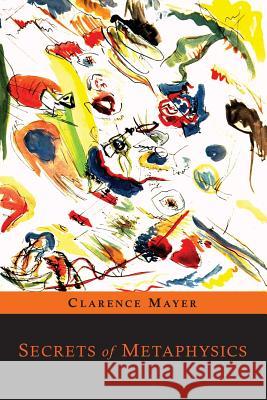Secrets of Metaphysics » książka
Secrets of Metaphysics
ISBN-13: 9781614277248 / Angielski / Miękka / 2014 / 136 str.
2014 Reprint of 1935 Edition. Full facsimile of the original edition. Not reproduced with Optical Recognition Software. Clarence Mayer's "Secrets of Metaphysics" occupies a unique place in the history of scientific spiritual metaphysics-a religio-philosophical movement having its origin in 19th century America (often referred to as "New Thought," and not unrelated to Christian Science)-and continues to do so today, thanks to this timely reissue. From its first appearance in 1933 "Secrets of Metaphysics" contributed a truly new type of work to the large and still growing body of instructional and inspirational literature flowing from the various schools of spiritual metaphysics and reaching a public always edified, but still wanting in the knowledge exactly how to apply these wonderful truths. Not that this information was absent from Dr Holmes' own "The Science of Mind" (to which there were really no comparable texts); but what was wanting in the entire field, across all denominational lines, was something like a working manual of the new "science," the emphasis being on its deductive application. Mayer's classic work provides such a manual and for this reason remains timely to this day. Our edition contains a new introduction and list of errata by Arthur Vergara, D.D.
2014 Reprint of 1935 Edition. Full facsimile of the original edition. Not reproduced with Optical Recognition Software. Clarence Mayers "Secrets of Metaphysics" occupies a unique place in the history of scientific spiritual metaphysics-a religio-philosophical movement having its origin in 19th century America (often referred to as "New Thought," and not unrelated to Christian Science)-and continues to do so today, thanks to this timely reissue. From its first appearance in 1933 "Secrets of Metaphysics" contributed a truly new type of work to the large and still growing body of instructional and inspirational literature flowing from the various schools of spiritual metaphysics and reaching a public always edified, but still wanting in the knowledge exactly how to apply these wonderful truths. Not that this information was absent from Dr Holmes own "The Science of Mind" (to which there were really no comparable texts); but what was wanting in the entire field, across all denominational lines, was something like a working manual of the new "science," the emphasis being on its deductive application. Mayers classic work provides such a manual and for this reason remains timely to this day. Our edition contains a new introduction and list of errata by Arthur Vergara, D.D.











